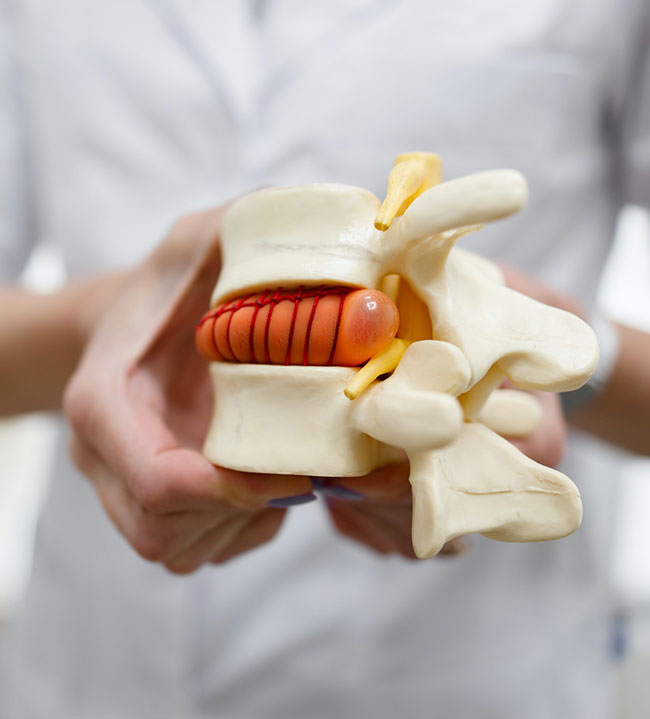Symptoms of Herniated Disk
Symptoms of a herniated disk depend on where the disk is situated and whether the disk is pressing on a nerve. Herniated disks usually affect one side of the body.
- Arm or leg pain.If your herniated disk is in your lower back, you’ll typically feel pain in your lower back, buttocks, thigh, and calf. You might have pain in part of the foot as well.
Herniated disk in the neck will generally cause pain in your shoulder and arm. This pain might shoot into your arm or leg when you cough, sneeze or move into certain positions.
Numbness or tingling. A herniated disk often causes radiating numbness or tingling in the body part served by the affected nerves.
- Muscles served by the affected nerves tend to weaken. This can cause you to stumble or affect your ability to lift or hold items.
What Should I Expect During My Herniated Disk Assessment?
Dr. Rob will carefully listen to your concerns and review your full medical history with you.
This will be followed by observation of your posture and range of motion.
Then, the doctor will palpate (feel) your full spine to determine if there is any vertebral displacement.
If warranted, digital imaging (X-ray, MRI, or CT scan) may be ordered to ensure the doctor can conduct a thorough visual assessment of the spine and associated soft tissues.
Finally, using the findings gathered from the steps above, the doctor will determine a comprehensive, scientifically based, effective, and efficient treatment plan tailored to achieve your health and recovery goals.
What Techniques Does Cashel Chiropractic Use to Treat a Herniated Disk?
Dr. Rob uses only non-invasive, drug-free techniques to treat herniated disks. Your treatment plan may include one or more of these techniques:
- Spinal adjustments
- Decompression
- Massage therapy
- Heat / cold therapies
- Specialized exercises
Frequently Asked Questions
These answers can help you better understand a herniated disc.
What Can Happen if a Herniated Disk Is Left Untreated?
If left untreated, the pressure a herniated disk can place on nerves can lead to significant and permanent nerve damage. This nerve damage can result in sharp pain, incontinence, loss of sensation in extremities, or even paralysis.
Can Chiropractic Care Heal a Herniated Disk?
Chiropractic care can provide relief from the severe pain herniated discs cause and can even help you avoid surgery or other extreme medical measures.
How Long Will It Take to Heal a Herniated Disk?
The number of visits you will need for your herniated disk will depend on the severity of the herniation and if additional problems are related to the herniation. Typically, a disc herniation can take up to three months or longer to treat.

